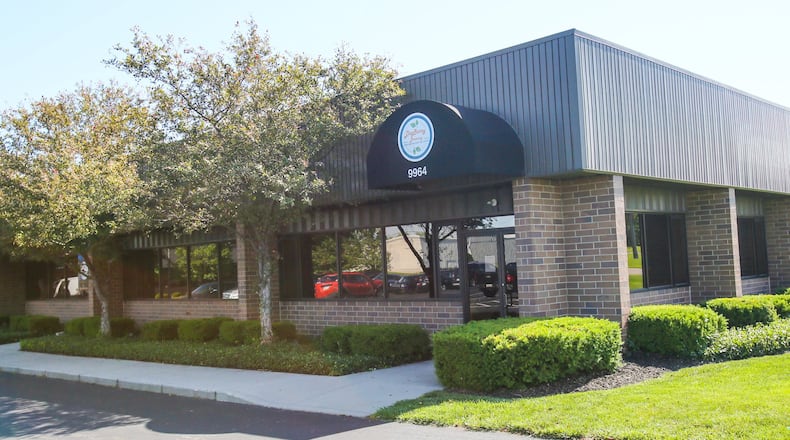Meyer said he never intended DogBerry to be a big-league distributor. After leaving what he calls “the real world” 10 years ago, he became a stay-at-home dad and started craft brewing as an entrepreneurial hobby. He opened DogBerry in 2014.
“I grew up in a family that appreciated good beer,” he said. “I was the kid in high school who was always bringing Sam Adams while everyone else was bringing 30-packs of the cheapest stuff they could find.”
Meyer said COVID-19 only affirmed his original choice to follow his passion.
“I’ve never taken a paycheck (from DogBerry),” he said. “I’m spending my life doing what I want to do. I’m not interested in trying to compete with companies that can outspend me 10-to-1.”
Although the taproom is re-opened now, DogBerry hasn’t yet resumed distribution. Before the lockdown, you could find DogBerry beers in various establishments in Greater Cincinnati and Dayton.
“We’ll start up (distribution) again at some point; we’re discussing it,” Meyer said. “We just need to find a plan that fits with how things have adjusted with COVID. During the lockdown, I had to lay off the sales reps and taproom staff, rely on volunteers to do carry-out while I (still recovering from COVID) quarterbacked from the couch.
“Fortunately, our regular customers gave us a lot of support for carry-out. That and running it on a shoestring budget allowed us to operate without taking out any loans.”
Larger craft breweries such as March First, which also owns Cincinnati Distillery, West Chester’s FigLeaf brewing, and Woodburn Brewing, have weathered the storm a little more smoothly. With beers, ciders, and seltzers in over 400 bars in most of Ohio’s major cities (they have resumed distribution) and 20-30 big-box supermarket stores, their main problem when the economy slowly reopened last spring was logistics.
“Beer typically takes 3-6 weeks to brew and ferment, depending on the beer,” said Josh Engel, Marketing Manager for March First. “Without knowing what the demand would be, we had to guess how much beer to brew and what kind.
“The risk was if we brewed a bunch of beer and there was another shutdown, it all goes bad. Now, demand is spiking, but we’re behind because we pumped the brakes. We’ve been doing more canning than ever before, and that’s helped.”
Engel said his breweries were never in danger of closing permanently thanks to solid financial backing from their March First ownership group.
“We had a skeleton crew, one person during the day handling carry-out during limited hours, selling a growler or a six-pack. When we heard we were going to re-open, we brought the brewing staff back a week and a half beforehand. Our staff relied on the unemployment system. When there was need, our ownership helped with groceries and food.
“FigLeaf wasn’t hurt too badly because they close at 10 p.m. during the week anyway, though they missed the later weekend crowds. March First was impacted more, because they’re open later (daily).”
One March First property that hasn’t yet reopened is Woodburn, which March First just purchased a few months ago after it closed down permanently due to the pandemic.
“The previous owner hadn’t paid certain licensing fees and taxes,” Engel said. “We’ll have an announcement on its reopening soon. It will be a soft opening. We’ll spruce up and expand the taproom, move the brewing to FigLeaf.”
Meanwhile for DogBerry, Meyer said things aren’t nearly back to normal yet, but they’re limping along.
“We’re still down 25-30 percent,” he said. “It’s the weekly business that’s hurting the most. With people working from home instead of the office, we’re not getting the happy hours, retirement parties, etc. We’re having a fundraising event in May, and we’ll do more once things loosen up. It’s better when people can mill around. It’s not as fun when you have to be seated. It’s not great, but we’ve been through the worst part. It will survive as long as we’re determined to make it survive.”
About the Author
